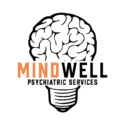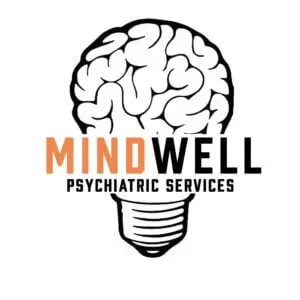Breaking OCD: Strategies & Support for an Obsession-Free Life
If you’re ready to start breaking OCD’s hold on your life, you’ve come to the right place. At Mindwell Psychiatric Services, we help people overcome Obsessive-Compulsive Disorder every day. This guide will serve as your roadmap to understanding OCD, demystifying medication strategies, and unveiling the pivotal role that mental health practitioners play in your journey toward an obsession-free life.
Understanding OCD: Unraveling the Obsession Enigma
At its core, Obsessive-Compulsive Disorder is a relentless mental condition characterized by obsessions and compulsions. These are not the everyday worries or habits. Instead, they are like uninvited guests that invade your thoughts and demand your immediate attention. For instance, obsessions can take various forms, from a relentless fear of contamination to disturbing thoughts of harming others. Compulsions, on the other hand, are repetitive behaviors or rituals that individuals with OCD feel compelled to perform to alleviate the distress caused by their obsessions.
To put it simply, OCD is not a mere preference for cleanliness or orderliness. Rather, it’s a mental state where intrusive, distressing thoughts (obsessions) drive individuals to perform ritualistic behaviors (compulsions) as a way to temporarily relieve their anxiety. Therefore, when these obsessions and compulsions begin to take over one’s life, it’s time to recognize the presence of OCD and begin the process of breaking OCD’s grip.
Breaking OCD with Medications: The Role of Treatment
The mention of OCD medications often raises eyebrows and elicits concerns. However, there are myths and misconceptions that need to be dispelled. The truth is, these medications are not about transforming you into a lifeless automaton. Instead, they are potent tools that can help you regain control over your life.
OCD medications primarily target the underlying neurochemical imbalances in the brain that contribute to the obsessions and compulsions. By fine-tuning the levels of neurotransmitters like serotonin, these medications can reduce the intensity and frequency of OCD symptoms. Think of them as allies in your quest for breaking OCD and achieving an obsession-free life. Medication management ensures you get the right treatment for your unique needs.
SSRIs: The First Line of Defense
First, Selective Serotonin Reuptake Inhibitors (SSRIs) are often the first line of defense against OCD. These medications work by increasing the availability of serotonin, a neurotransmitter associated with mood regulation. Common SSRIs used for OCD include Fluoxetine (Prozac), Sertraline (Zoloft), and Fluvoxamine (Luvox).
Alternative Options
Second, Clomipramine, a tricyclic antidepressant, is another option for OCD treatment. It acts on multiple neurotransmitter systems and is often considered when SSRIs are not effective.
It’s crucial to understand that these medications are not magic pills. Specifically, they won’t make your obsessions vanish instantly. Instead, they provide you with the tools to face your obsessions with reduced anxiety, making it easier to resist the compulsions.
Tailoring Medication Strategies: Personalized OCD Treatment
One of the critical principles in breaking OCD is personalization. There is no one-size-fits-all approach because OCD manifests differently in each individual. Therefore, this is where precision psychiatry steps in – it’s akin to crafting a unique, tailored suit for your mental health.
The journey begins with a comprehensive assessment by a skilled mental health practitioner. This isn’t a mere formality. Rather, it’s a deep dive into your history, symptoms, and unique needs. A psychiatric evaluation serves as the foundation for creating a personalized treatment plan.
This plan may include medications, therapy, lifestyle changes, or a combination of these approaches. Here’s how the process works:
Comprehensive Assessment
First, your journey begins with a comprehensive assessment by a mental health practitioner. This isn’t a one-size-fits-all approach. Instead, it’s about getting to know you, your history, and your unique mental landscape. The mental health practitioner asks questions, listens to your experiences, and collaborates with you to understand the challenges you’re facing.
Diagnosis and Understanding
Second, they work on diagnosing any mental health conditions that may be affecting you. This isn’t about putting labels on you. Rather, it’s about understanding the patterns of thoughts, emotions, and behaviors that are at play. With a clear diagnosis, the practitioner can pinpoint the areas that need attention.
Tailored Treatment Plan
Third, with a diagnosis in hand, the mental health practitioner crafts a tailored treatment plan. This plan isn’t just about medication. Instead, it’s a holistic approach that considers your entire mental landscape. It may include therapy, lifestyle changes, and medication when necessary. Each element of the plan is designed to address specific challenges in breaking OCD.
Medication Management
Additionally, if medication is part of your treatment plan, the mental health practitioner carefully selects the right medication based on your diagnosis, genetics, and any potential side effects. They monitor your progress and make adjustments as needed. Think of them as the navigators of your mental ship, ensuring you stay on course.
Therapeutic Guidance
Furthermore, therapy is another essential tool in your treatment toolkit, and your mental health practitioner can recommend the right therapeutic approach for you. Whether it’s cognitive-behavioral therapy (CBT), exposure and response prevention (ERP), or another modality, therapy helps you explore the nooks and crannies of your mental landscape. It’s like having an experienced guide who knows the terrain well.
Education and Empowerment
Moreover, your mental health provider isn’t just a treatment provider; they’re an educator and an advocate for your mental health. They explain your diagnosis, treatment options, and how to navigate the challenges ahead. Consequently, they empower you with knowledge, helping you become the steward of your own well-being.
Ongoing Support
Finally, mental health isn’t a one-and-done deal. Your practitioner provides ongoing support, ensuring you continue to thrive. They’re there to answer your questions, address concerns, and make adjustments to your treatment plan as needed. You’re not alone on this journey; you have a trusted partner by your side.
Conclusion: Your Path to Breaking OCD Starts Now
In conclusion, with a mental health practitioner’s guidance, breaking OCD becomes an achievable goal. Your journey toward an obsession-free life can begin today. It’s not about erasing challenges. Instead, it’s about equipping you with the tools and strategies to conquer them.
Therefore, contact Mindwell Psychiatric Services today and let us help you start breaking OCD’s hold on your life. According to the International OCD Foundation, effective treatments exist that can help most people with OCD reduce their symptoms and live fulfilling lives. Don’t wait—take the first step toward freedom today.





